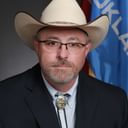A recent Newsweek article notes that a growing number of jurors in capital murder cases are voicing their concerns about the accuracy and fairness of the justice system. Some of these jurors have petitioned the legal authorities to correct injustices regarding possibly innocent or incorrectly sentenced inmates.
“I felt like I was pushed into making the decision of the 10 other jurors. I didn’t feel comfortable with it, but I didn’t know my rights as a juror,” said Sylvia Coeburn, one of the jurors who sentenced Kenneth Boyd of North Carolina to death nearly 20 years ago. Coeburn and another juror from the case, Sue Griffin, petitioned the governor for clemency in Boyd’s case, but on December 2, 2005, he became the nation’s 1,000 person to be executed since capital punishment was reinstated in 1976.
In 2004, six jurors pleaded for clemency on behalf of Darnell Williams, an Indiana man on death row. The jurors noted that a key witness in the case had recanted crucial testimony and that DNA tests had cast doubt on Williams’ guilt. The governor commuted Williams’ death sentence to life in prison. In Louisiana, Kathleen Hawk Norman, a jury forewoman who voted in 1996 to execute Dan Bright, later filed an amicus brief on his behalf. Bright was later exonerated and freed from death row, and Norman went on to start Jurors for Justice, a group to advocate for those haunted by death verdicts and to aid condemned inmates. Norman said she founded the group in honor of Bright, who had told her, “You were used like I was used. Do me a favor — don’t forget about the others.”
(Newsweek, December 12, 2005). See New Voices. For a more in-depth discussion of this and related issues, see DPIC’s latest report, Blind Justice: Juries Deciding Life and Death With Only Half the Truth.
News
Growing Concern Among Jurors in Death Penalty Cases
By Death Penalty Information Center
Posted on Dec 15, 2005 | Updated on Mar 14, 2025
Citation Guide



